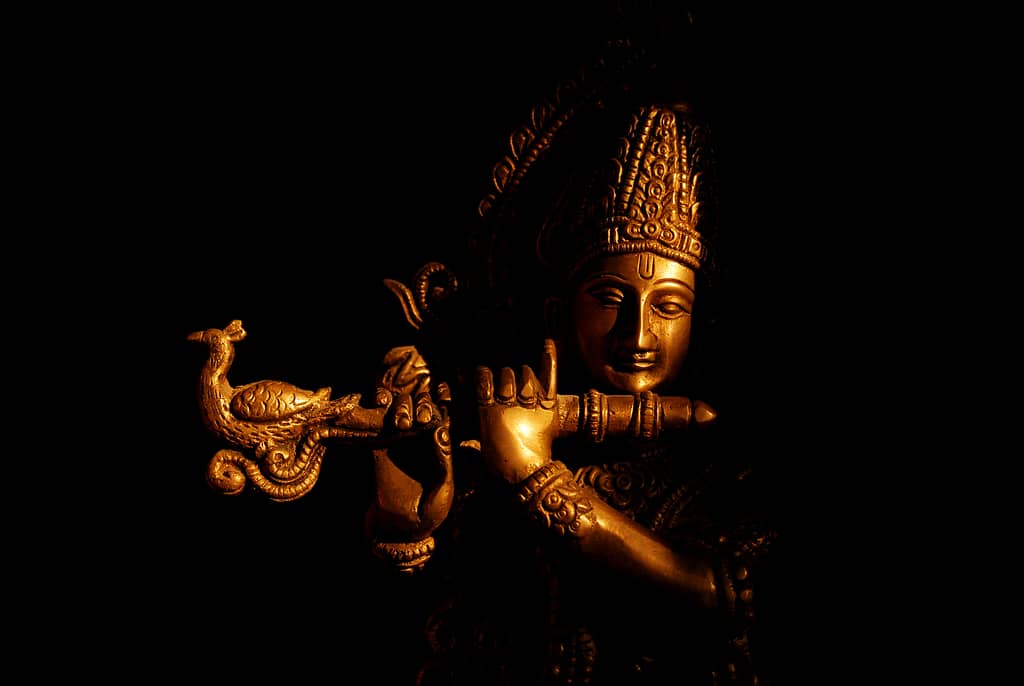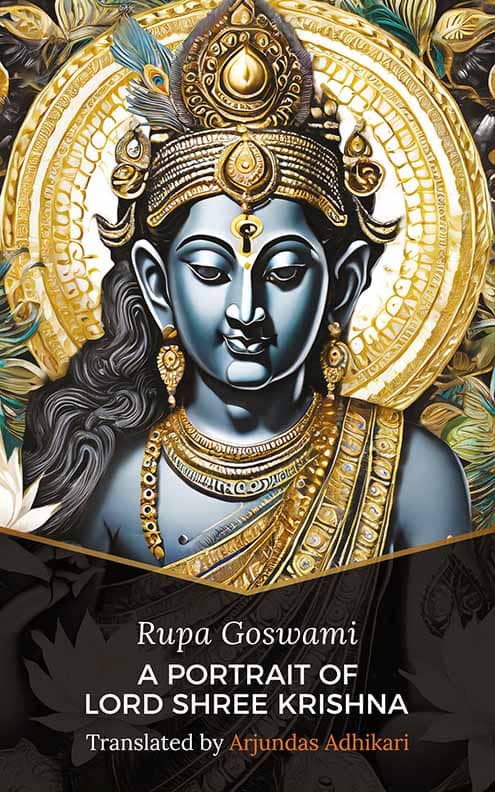
What is meant by, ‘Hindu’, is the question: that is, to what degree is there a sharing of beliefs among those people of the Indian subcontinent known as Hindus. Around the 850s (BCE), India’s Persian neighbours began replacing their s’s with h’s, and started calling the trans-boundary river Sindhu (aka Indus) the ‘Hindu’, and calling the people who lived beyond it, ‘Hindoos.’ So ‘Hindu’ came to refer to the general whereabouts of a people, but not about what those people believed in.
Hindus have their gods: of sun, of moon, of weather, sea, air, fire and earth etc. and as to whom is god of gods, the strong contenders are Brahma, Shiva, Indra and Vishnu. Vishnu is Krishna, and Krishna is Vishnu, so Vidagdha Madhava is a categorical Hindu drama since it is all about Krishna, is indeed, A Portrait of Lord Shree Krishna. An early 20th century Indologist once commented that the supremacy of Krishna seems most reasonable when you consider how He’s solely immersed in loving pastimes, having delegated the tedious tasks of managing His universes to others.
As to who is the most spiritual of the gods, one also arrives at Krishna since He isn’t part of the material world. He’s of a different dimension, and though it appears as if He’s born the same way as any mortal is, in actual fact He never wasn’t, for He’s an avatar, an incarnation, an immortal. The spiritual nature of Vidagdha Madhava by Rupa Goswami is palpable, moreover, many would argue that of Indian dramas, Rupa Goswami’s Vidagdha Madhava is the most spiritual of all.
In getting close to Krishna, it becomes somehow feasible to reconcile the feature of His inconceivable greatness as the ’cause of all causes’, with the tenderness of His warm disposition, and this is the very acme of the Hindu experience. The point of the Hindu, or Indian, spiritual drama, is for one to glean something of this spiritual experience. And although Hindu sophists don’t like God being a person, but rather prefer to maintain that God is unknowable and impersonal (alas, many are so persuaded), curiously, they also worship Krishna, but with the idea that they’ll become Him. In any case, the Vidagdha Madhava by Rupa Goswami has appealed to all spiritual persuasions among the Hindus for five centuries, or more.
Of course, a label won’t define an art work, and ‘Hindu drama’ is no truly adequate frame of reference for A Portrait of Lord Shree Krishna either, since, for one thing, the drama involves the same expert techniques dramatists throughout the world have been using to charm audiences for aeons. The possibility of being transported to an exotic, unfamiliar world is perhaps what inspires us upon hearing the words ‘Hindu drama’, but the proof of the pudding’s in the eating. My humble opinion is that a little exploration of Rupa Goswami’s spiritual drama, Vidagdha Madhava, is well-capable of affording one a truly out-of-this-world experience!

